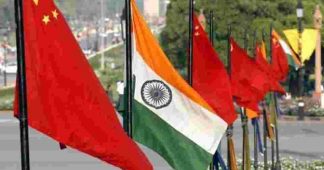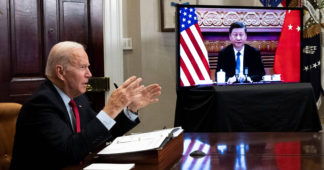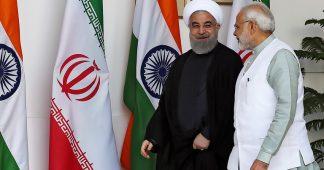Indian Prime Minister Narendra Modi has held his first summit with the leaders of five Central Asian nations, which took place online due to the coronavirus pandemic. The parties agreed to boost economic and cultural ties and coordinate their activities regarding the situation in Afghanistan. Chinese President Xi Jinping had invited the five post-Soviet countries for a video conference two days earlier, promising significant aid to them and an increase in trade to $70 bln. New Delhi doesn’t have that kind of money but enjoys certain advantages based on its traditionally close ties with the region, Nezavisimaya Gazeta writes.
In an address to the leaders of Kazakhstan, Kyrgyzstan, Tajikistan, Turkmenistan and Uzbekistan, Modi stated that the five countries and India shared the same goals and security concerns. New Delhi’s political principle is to expand its circle of good neighbors.
Professor Sergey Lunev from Moscow State Institute of International Relations points out that “India presents itself as an important player in Afghanistan and Central Asia.” “It indeed has serious interests there. New Delhi expects to get access to the region’s energy resources, which was actually made clear 30 years ago. There were plans to establish communications through Iran’s Chabahar port and Afghanistan but in 2019, India took the US side in the standoff between Washington and Tehran, joining US sanctions,” the expert explained.
China acts aggressively in the economic field, while Central Asian nations are sympathetic to India. However, China is unwilling to let India enter the region. New Delhi’s policy is totally in line with Russia’s interests but Moscow doesn’t want to interfere in the dispute between India and China, Lunev noted.
We remind our readers that publication of articles on our site does not mean that we agree with what is written. Our policy is to publish anything which we consider of interest, so as to assist our readers in forming their opinions. Sometimes we even publish articles with which we totally disagree, since we believe it is important for our readers to be informed on as wide a spectrum of views as possible.











